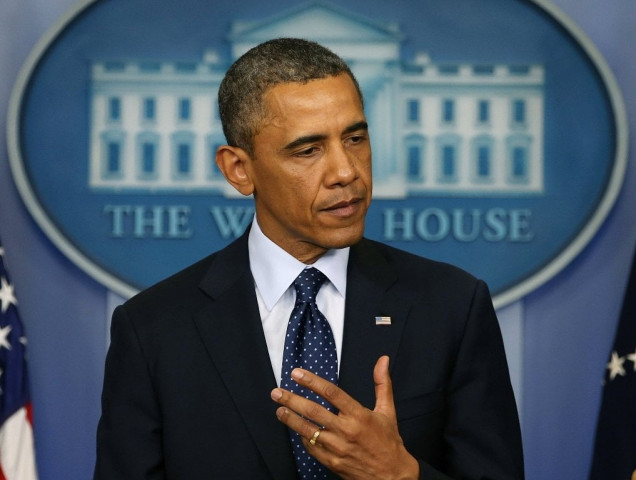Pentagon weighs larger post-2014 force in Afghanistan
The Obama administration is negotiating a long-term security agreement with the Afghan government.

Obama administration recognizes that the Afghan forces may need more help after 2014 than originally hoped. PHOTO: AFP
Officials had previously suggested President Barack Obama's administration was considering a smaller force of up to 8,000-12,000 troops to stay in Afghanistan after the bulk of a Nato led contingent departs as planned at the end of 2014.
But the former US and Nato commander in Afghanistan, retired general John Allen, and a former top Pentagon official, Michele Flournoy, floated the idea last week of a "bridging force" that would expand the post-2014 presence by several thousand troops for up to three years.
The additional troops would be able to provide air power, medical evacuations and other support to the Afghan forces, which will still lack some capabilities when Nato forces depart in 2014, according to Allen and Flournoy, who outlined the idea in a report released Friday.
The Pentagon confirmed for the first time Monday that the option was being considered.
"I think that they're looking at all different types of ideas and possible ways ahead," spokesman Colonel Steve Warren told reporters when asked about the proposal.
"It's certainly an idea that's being discussed in many different settings and forums," he said.
It was unclear if Defense Secretary Chuck Hagel would bring up the idea at a Nato meeting of defense ministers in Brussels on Tuesday, he added.
The option of a larger US force appears to signal a recognition in the Obama administration that the Afghan forces may need more help after 2014 than originally hoped.
However, some of Obama's fellow Democrats in Congress, who are anxious to wrap up the war effort, may strongly oppose any suggestion of a larger long-term military footprint in Afghanistan.
The Afghan army and police have grown rapidly in a multi-billion international effort to build up the country's security forces, which now number roughly 350,000.
US and Nato commanders have touted the Afghan forces as increasingly capable and say that the Afghans are now in the lead in combat, with coalition forces mostly playing an advisory and training role.
But the Afghan government forces are plagued with a myriad of problems, including a high rate of desertion, weak logistics and a fledgling fleet of helicopters.
The Obama administration is negotiating a long-term security agreement with the Afghan government and has yet to announce how many troops it hopes to keep in the country after 2014.



















COMMENTS
Comments are moderated and generally will be posted if they are on-topic and not abusive.
For more information, please see our Comments FAQ